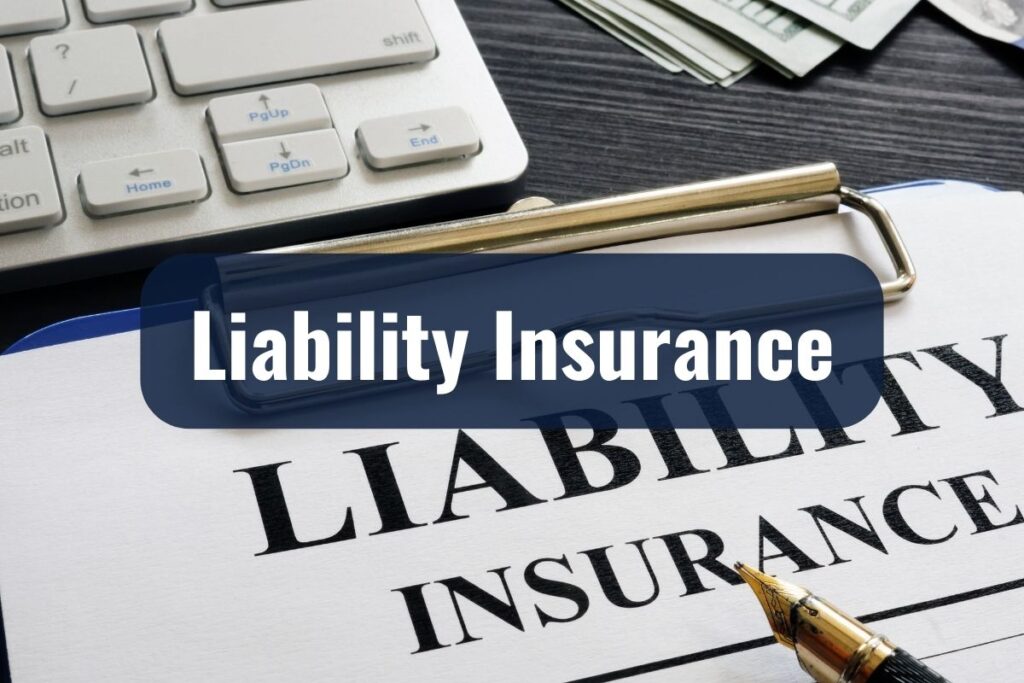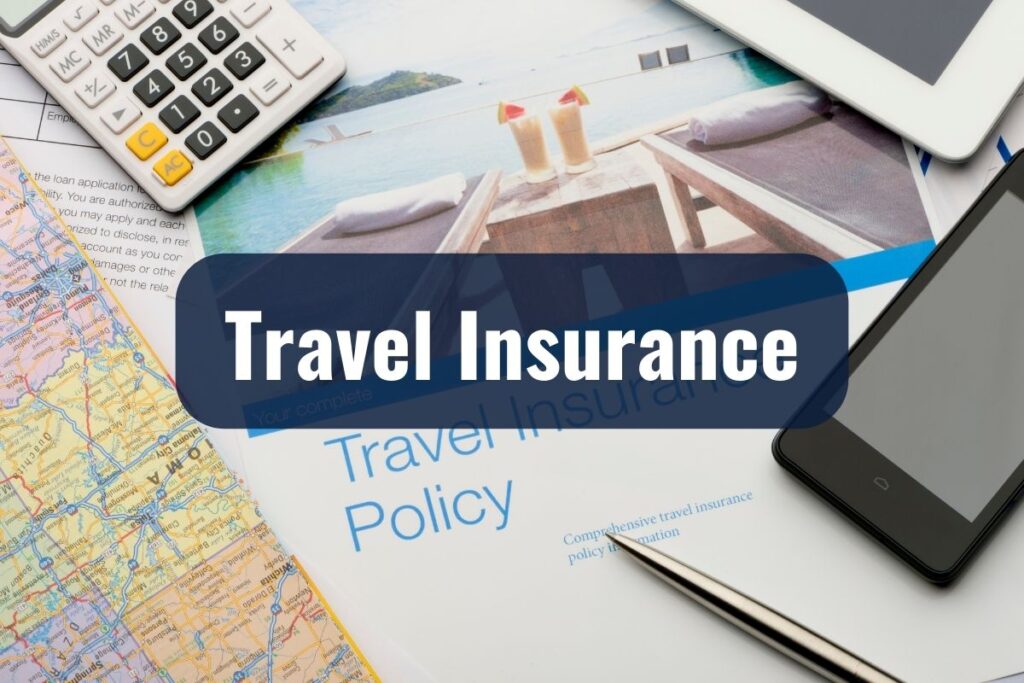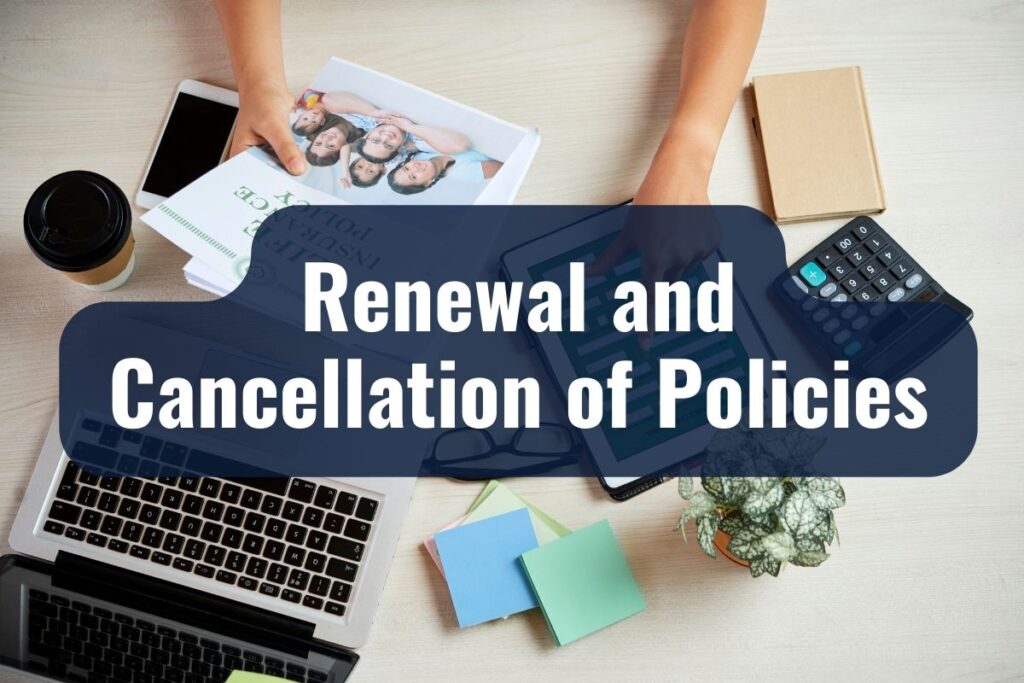France has specific insurance requirements for health, home, vehicles, and more to ensure everyone’s safety and financial security.
We want to provide clear and practical information on the essential insurance you need while living in France, focusing on securing the necessary coverage smoothly and efficiently. Whether you’re here for work, study, or leisure, having the right insurance meets legal obligations and brings peace of mind.
KEY TAKEAWAYS
- Health insurance is foundational in France, covering basic to comprehensive healthcare needs.
- Home insurance is mandatory for renters and homeowners, offering protection against various risks.
- Car insurance, at a minimum third-party liability, is legally required for all vehicle owners in France.
- Personal liability insurance safeguards against accidental damages or injuries caused to others.
- Travel insurance is crucial for coverage of medical emergencies and trip disruptions abroad.
- Professional insurance protects your business activities, assets, and reputation against unforeseen events.
Health Insurance
In France, health insurance is a cornerstone of the healthcare system, ensuring access to medical services for all residents. The state health insurance, known as Sécurité Sociale, provides basic coverage.
Most employed individuals and their families become automatically enrolled through their employment. For those self-employed or without employment, registration is still straightforward, requiring submission of necessary documents to the local CPAM (Caisse Primaire d’Assurance Maladie).
Supplementary Health Insurance (Mutuelle)
While Sécurité Sociale covers a significant portion of healthcare costs, it doesn’t cover everything. Here’s where supplementary health insurance, or “mutuelle,” comes into play. A mutuelle covers the remaining costs not covered by state insurance, including parts of consultations, medications, and certain treatments.
For comprehensive coverage, considering a mutuelle is advisable. Many employers offer mutuelle plans as part of their employment packages, but individual plans are also available through various insurance providers.
Enrollment Process
For State Health Insurance (Sécurité Sociale): Contact your local CPAM office or use the Ameli.fr website. You’ll need identification documents, proof of residence, and, if employed, proof of employment.
For Supplementary Insurance (Mutuelle): Research and compare different plans from various providers. Consider factors like coverage, cost, and any specific health needs you might have.
Coverage and Benefits
State Health Insurance: Covers a portion of expenses related to doctor visits, hospital stays, medications, and maternity care.
Supplementary Insurance: Covers the remaining costs, potentially including dental and optical care, which are not fully covered by state insurance.
Home Insurance

The Importance of Home Insurance in France
Home insurance is mandatory for both renters and homeowners in France. It offers protection against various risks, such as theft, fire, water damage, and natural disasters.
Not only does it cover the physical structure of your home, but it also extends to personal possessions and third-party liability, which can be invaluable in case of accidents affecting neighbors or visitors.
Coverage Essentials
Home insurance policies can vary, but here are the key components typically included:
Damage to Property: Coverage for damage caused by fire, explosion, water leakage, and natural catastrophes.
Theft and Vandalism: Protection against burglary and vandalism, covering the loss of personal belongings.
Third-Party Liability (Responsabilité Civile): Essential for homeowners and renters alike, this covers injury or damage to third parties or their property while they are in your home.
Choosing the Right Policy
When selecting a home insurance policy, consider the following:
Coverage Level: Assess the value of your property and belongings to ensure you choose a policy that adequately covers your needs.
Excess: The amount you agree to pay towards any claim. A higher excess can lower your premium, but ensure it’s an amount you can afford.
Special Conditions: If you have valuable items, such as jewelry or art, you may need additional coverage. Similarly, if you’re in an area prone to natural disasters, verify that your policy covers such events.
Steps to Get Insured
Assess Your Needs: Evaluate the value of your property and possessions to determine the level of coverage required.
Shop Around: Compare offers from multiple insurance companies. Consider their reputation, customer service, and the claims process.
Understand the Policy: Read the terms and conditions carefully, paying attention to coverage limits, exclusions, and your obligations as the policyholder.
Policy Management
Renewal: Home insurance policies in France are typically renewed annually. Your insurer should notify you before the renewal date, giving you the chance to review your coverage and make any necessary changes.
Making a Claim: In the event of damage or theft, report the incident to your insurer as soon as possible, providing all required documentation and evidence to support your claim.
Car Insurance

| Coverage Type | Description |
| Third-Party Liability | Covers damage or injuries your vehicle causes to others |
| Comprehensive Insurance | Offers broad coverage, including theft, fire, vandalism, and damage to your vehicle |
| Intermediate Coverage | Policies that include certain aspects of comprehensive coverage like theft, fire, and glass breakage |
Legal Requirements for Vehicle Owners
In France, all vehicle owners are legally required to have at least third-party liability insurance, known as “assurance responsabilité civile.” This basic coverage protects against damage or injury to others caused by your vehicle. Driving without insurance is a serious offense, leading to fines, vehicle impoundment, or even harsher penalties.
Types of Car Insurance Coverage
Third-Party Liability (Assurance Responsabilité Civile): Covers damage to others caused by your vehicle, including injury to other people and damage to their property. This does not cover damage to your vehicle.
Comprehensive Insurance (Assurance Tous Risques): Offers the broadest coverage, including theft, fire, vandalism, and damage to your vehicle, even if you are at fault.
Intermediate Coverage: Some insurers offer policies between third-party liability and comprehensive coverage, which may include theft, fire, and glass breakage.
Choosing Your Coverage
Selecting the right car insurance policy depends on several factors:
Vehicle Value and Use: A newer or more valuable vehicle might warrant comprehensive coverage, while an older car might not.
Driving Habits: Consider how often and where you drive. High-risk areas for theft or accidents might necessitate more coverage.
Budget: Balance your coverage needs with what you can afford. Comprehensive insurance offers more protection but comes at a higher cost.
Additional Insurance Options
Legal Protection Insurance: Covers legal fees in case of disputes related to your vehicle.
Breakdown Cover: Assistance in case of a breakdown, often including towing services and a replacement vehicle.
Steps to Insure Your Vehicle
Evaluate Your Needs: Assess your vehicle’s value, your driving habits, and your financial capacity to determine the appropriate level of coverage.
Compare Offers: Research and compare policies from different insurers. Look beyond price to consider coverage details, customer service, and claim processes.
Check for Discounts: Some insurers offer discounts for low-mileage drivers, those with a history of safe driving, or for bundling insurance policies.
Policy Management and Claims
Policy Renewal: Car insurance policies are automatically renewed each year. You’ll receive a notice from your insurer, which is an opportunity to review and adjust your coverage if necessary.
Filing a Claim: In the event of an accident or theft, contact your insurer immediately. Provide all necessary information and follow their instructions for submitting a claim.
Liability Insurance

The Role of Personal Liability Insurance
Personal liability insurance, known as “assurance responsabilité civile vie privée,” is a critical component of financial protection in France. It covers damages or injuries you, or members of your household, may unintentionally cause to others. This insurance is often a requirement for various activities and housing contracts, underscoring its importance in daily life.
Coverage Provided by Liability Insurance
This insurance typically covers:
Injuries to Others
If someone is injured in your home or by your actions, liability insurance can cover medical costs and legal fees.
Property Damage
Covers the cost of repairing or replacing someone else’s property damaged due to your negligence.
Legal Defense
In case of a lawsuit, it can provide coverage for legal representation and court fees.
Who Needs Liability Insurance?
Virtually everyone can benefit from personal liability insurance, especially:
Families with Children
Children’s actions can inadvertently cause damage or injury, making this insurance essential for peace of mind.
Pet Owners
Pets, while beloved members of the family, can cause unexpected damage or injuries to others.
Individuals Engaged in Sports or Hobbies
Certain activities carry a risk of accidental harm to others, necessitating additional coverage.
How to Obtain Liability Insurance
Many home insurance policies in France include personal liability coverage, making it unnecessary to purchase a separate policy. However, it’s crucial to:
Review Your Current Policies
Check your home or apartment insurance documents to confirm liability coverage is included.
Understand the Scope of Coverage
Ensure the policy limits are adequate for your lifestyle and the types of activities you and your household members engage in.
Consider Additional Coverage
If your current policy does not offer sufficient protection, or if you engage in high-risk activities, explore options for additional liability insurance.
Managing Your Liability Insurance
Keep Your Policy Updated: Inform your insurer of any significant lifestyle changes that could affect your coverage needs, such as the addition of a pet or starting a new hobby.
Understand the Claims Process: Familiarize yourself with the procedure for filing a claim, including any deadlines and required documentation.
Travel Insurance

The Importance of Travel Insurance
Travel insurance is an essential consideration for residents of France planning trips abroad, especially outside the European Union. It provides coverage for unexpected events such as medical emergencies, trip cancellations, lost luggage, and other travel-related issues.
Even within the EU, where the European Health Insurance Card (EHIC) or its replacement, the Global Health Insurance Card (GHIC), offers some level of health coverage, travel insurance can fill in the gaps and offer additional peace of mind.
Key Benefits of Travel Insurance
Travel insurance policies can vary widely but typically include:
Medical Expenses
Covers emergency medical treatment abroad, which can be prohibitively expensive, especially outside the EU.
Repatriation
In case of serious illness or injury, travel insurance can cover the costs of returning you to France for treatment.
Cancellation and Interruption
If you need to cancel or cut short your trip due to unforeseen circumstances like illness or a family emergency, this coverage can reimburse non-refundable expenses.
Lost or Stolen Belongings
Provides compensation for lost, stolen, or damaged luggage and personal items during your trip.
Choosing a Travel Insurance Policy
When selecting a travel insurance policy, consider the following factors:
Destination: Ensure your policy covers your destination, especially if traveling to remote or high-risk areas.
Duration and Frequency of Travel: For frequent travelers, an annual policy may be more cost-effective than purchasing separate coverage for each trip.
Activities: If your trip includes adventure sports or activities, verify that your policy covers these. Some activities may require additional coverage.
Exclusions and Limits: Carefully review what is not covered and the limits on claims, particularly for valuables or medical treatment.
Purchasing Travel Insurance
Timing: Purchase your insurance as soon as you book your trip to ensure coverage for trip cancellations or interruptions.
Comparison Shopping: Compare policies from several providers to find the coverage that best meets your needs at a competitive price.
Read the Fine Print: Understand the terms and conditions, including the claims process, deductibles, and coverage limits.
Before You Travel
Carry Proof of Insurance: Keep a copy of your insurance policy and emergency contact numbers with you while traveling.
Check Travel Advisories: Stay informed about any travel advisories or restrictions for your destination that could affect your coverage.
Professional Insurance

Protecting Your Professional Life
Professional insurance is essential for freelancers, entrepreneurs, and business owners in France. It safeguards your professional activities, assets, and reputation against unforeseen events and liabilities. Whether you’re providing services, selling products, or engaging in consultancy, the right insurance can be the difference between a minor setback and a major financial crisis.
Types of Professional Insurance
Professional Liability Insurance (Assurance Responsabilité Civile Professionnelle)
This covers claims of negligence, errors, or omissions in the services you provide. It’s particularly crucial for consultants, financial advisors, and other professionals whose advice could lead to client losses.
Professional Indemnity Insurance
Similar to liability insurance, this protects against legal action from clients dissatisfied with your work. It covers legal fees and any compensation awarded.
Business Premises Insurance
If you own or rent space for your business, this insurance covers the property against risks like fire, theft, and natural disasters.
Cyber Insurance
As businesses increasingly rely on digital technologies, cyber insurance has become essential. It covers data breaches, cyber-attacks, and associated legal costs.
Assessing Your Insurance Needs
When considering professional insurance, evaluate:
The Nature of Your Business: The risks associated with a tech startup differ vastly from those of a retail store or a consultancy firm.
Legal Requirements: Some professions are legally required to have specific insurance, such as medical practitioners or architects.
Client Expectations: Many clients require their contractors or service providers to have adequate insurance coverage as part of their contracts.
Selecting the Right Insurance Provider
Choosing an insurer for your professional needs involves:
Comparing Offers: Look at several insurance companies, comparing coverage, premiums, and exclusions.
Understanding the Policy: Ensure you know what is and isn’t covered, how to make a claim, and any deductibles involved.
Seeking Advice: Consider consulting with an insurance broker or professional association in your field to find the best coverage options.
Managing Your Professional Insurance
Regular Reviews: As your business evolves, so do your insurance needs. Review and adjust your coverage annually or after significant business changes.
Prompt Claim Reporting: In the event of a potential claim, notify your insurer as soon as possible to ensure the smooth processing of your claim.
Tips for Choosing an Insurance Provider

Finding the Right Fit
Selecting an insurance provider is a crucial decision that can affect your peace of mind and financial security. With numerous companies offering a wide range of policies, it’s essential to find a provider that matches your needs and expectations.
Evaluate Their Reputation
Research the insurer’s reputation for reliability, financial stability, and customer service. Look for reviews from current and former policyholders, and check ratings from independent financial rating agencies. A reputable insurer should have a solid track record of handling claims fairly and efficiently.
Consider the Coverage Options
Insurance needs vary greatly from person to person. Ensure the provider offers coverage that suits your specific requirements, whether it’s comprehensive health insurance, liability coverage, or specialized professional insurance. The right insurer offers a range of policies and customization options that allow you to tailor coverage to your exact needs.
Assess Customer Service
Quality customer service is crucial, especially when dealing with something as important as insurance. Look for providers that offer accessible, responsive customer support. Services like online policy management, 24/7 claims reporting, and assistance in English can significantly enhance your experience.
Understand the Claims Process
The ease of filing a claim and the speed of processing are critical factors to consider. Inquire about the claims process, including any online tools, the average time for claim resolution, and the support available during the process. A provider with a straightforward, efficient claims procedure ensures less stress in times of need.
Compare Costs
While cost shouldn’t be the sole determining factor, it’s undoubtedly important. Compare premiums, deductibles, and coverage limits across different providers to find the best value for your money. Keep in mind that the cheapest option isn’t always the best—balance cost with the quality of coverage and service.
Check for Additional Benefits
Some insurance providers offer extra services or benefits, such as wellness programs, discounts for healthy behaviors, or bonuses for no claims. These can add significant value to your policy and enhance your overall satisfaction.
Seek Personalized Advice
Especially for complex insurance needs, consulting with an insurance broker can be beneficial. Brokers can offer personalized advice, compare policies on your behalf, and help you navigate the intricacies of insurance coverage. They can ensure you get the best coverage for your specific situation.
Procedure for Making an Insurance Claim

Filing an insurance claim can be a necessary step in receiving compensation for losses or damages covered under your policy. The process varies by type of insurance and provider, but following a general guideline can help ensure a smoother experience.
Immediate Steps
Report the Incident: Whether it’s an accident, theft, or damage to property, report the incident to the police if applicable. This is often a prerequisite for filing a claim, especially in cases of theft or significant property damage.
Contact Your Insurance Provider: Inform your insurer about the incident as soon as possible. Most companies have a deadline for when claims must be reported following an incident.
Gather Necessary Documentation
Incident Report: For accidents or theft, include the police report or any official incident documentation.
Evidence of Loss or Damage: Collect photos, videos, or any other evidence of the damage or loss. For health claims, include medical reports and bills.
Proof of Ownership: For property or personal belongings claims, you may need to provide purchase receipts, warranty cards, or any other proof of ownership.
Submit the Claim
Fill Out Claim Forms: Your insurer will provide claim forms that need to be filled out accurately and completely. Be as detailed as possible when describing the incident and the extent of the loss or damage.
Attach Documentation: Include all gathered documentation with your claim forms. This supports your claim and can expedite the process.
Review Before Submission: Ensure all information is correct and all required documents are included before submitting your claim to avoid delays.
Follow-Up and Claim Processing
Claim Acknowledgment: Your insurer should acknowledge receipt of your claim and provide an overview of the next steps.
Claim Assessment: An adjuster may be assigned to evaluate your claim. This might include inspecting the damage, reviewing documentation, and determining compensation.
Communication: Stay in touch with your insurer throughout the process. They may need additional information or clarification to proceed with your claim.
Receiving Compensation
Approval and Payment: Once your claim is approved, you’ll be informed about the compensation amount and when you can expect payment.
Dispute Resolution: If you disagree with the claim decision or compensation amount, inquire about the insurer’s dispute resolution process. Some cases may require mediation or legal action.
Tips for a Smooth Claims Process
Keep Records: Maintain copies of all submitted documents and correspondence with your insurance company.
Know Your Policy: Understanding the coverage, limits, and deductibles of your policy can help set realistic expectations for the claims process.
Be Proactive: Regular updates and prompt responses to your insurer’s requests can help speed up the claim process.
Renewal and Cancellation of Policies

Effectively managing your insurance policies includes understanding how to renew and, if necessary, cancel your coverage. This ensures your insurance remains aligned with your current needs and circumstances.
Renewal of Policies
Insurance policies in France typically have an annual renewal cycle. Here’s how to handle the renewal process:
Review Your Policy: Before the renewal date, assess your current coverage. Consider any changes in your situation that might affect your insurance needs, such as a move, a new vehicle, or changes in your health.
Update Information: Inform your insurer of any changes that could impact your policy. This can include new addresses, additional covered members, or significant purchases.
Compare Offers: Use the renewal period as an opportunity to compare offers from other providers. You might find better rates or coverage that suits your needs more closely.
Negotiate Terms: With your current provider or a new one, discuss your policy terms. You may be able to adjust your coverage or deductibles to better match your needs or budget.
Confirm Renewal: Once you’re satisfied with your coverage and terms, confirm the renewal with your insurer. Ensure you receive updated policy documents.
Cancellation of Policies
There may be times when canceling an insurance policy is necessary. Here’s the process:
Review the Policy Terms: Understand the conditions around canceling your policy, including any notice periods and potential penalties.
Notify Your Insurer: Send a written notice to your insurance company stating your intention to cancel. Include the effective date of cancellation, which should comply with any notice period requirements.
Follow Up: After submitting your cancellation notice, follow up to ensure the process is completed and your policy is officially canceled.
Documentation: Keep a copy of the cancellation notice and any correspondence. Once the cancellation is confirmed, ensure that you receive documentation stating that the policy has been terminated.
Considerations for Cancellation
Overlap of Coverage: If switching providers, ensure your new policy is in effect before canceling the old one to avoid any gaps in coverage.
Refunds: Depending on the timing of your cancellation, you may be entitled to a refund of part of your premium. Inquire about this with your insurer.
Legal Obligations: Remember that certain insurances, like third-party liability car insurance, are mandatory in France. Make sure you maintain the required coverage at all times.
Renewing and canceling insurance policies are critical aspects of managing your coverage effectively. By staying informed and proactive, you can ensure that your insurance policies continue to meet your needs and protect your interests.


